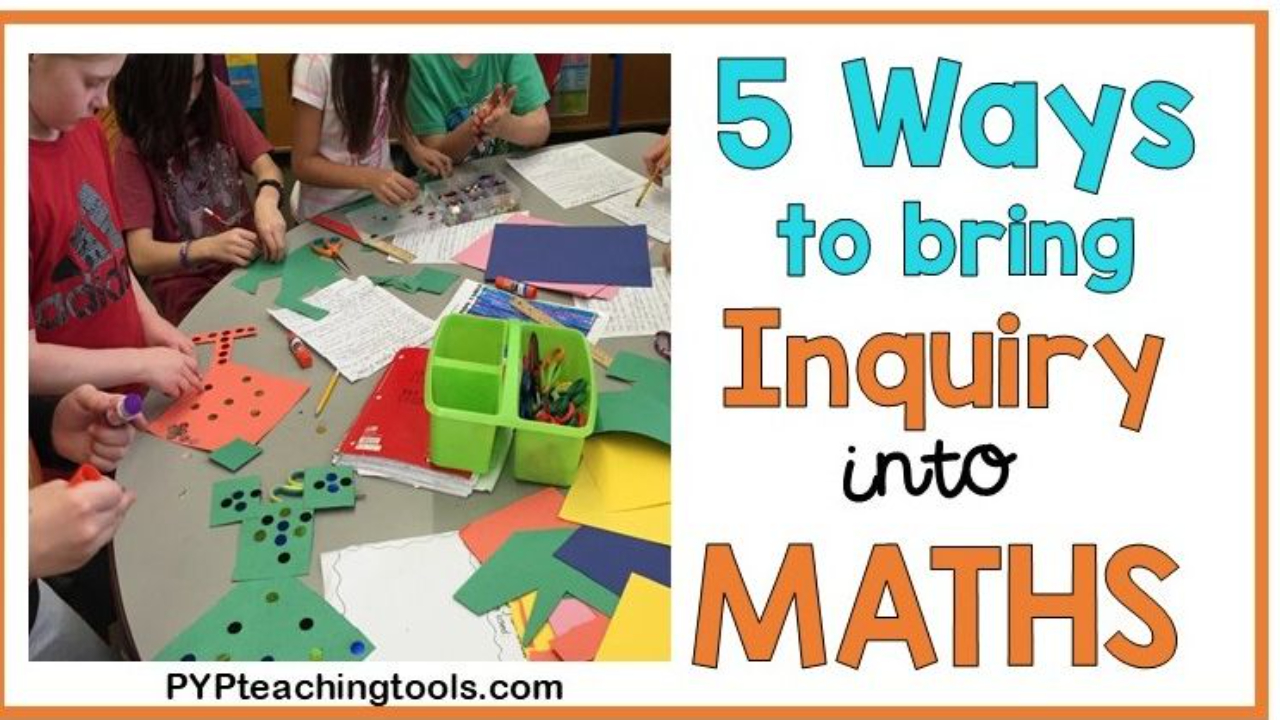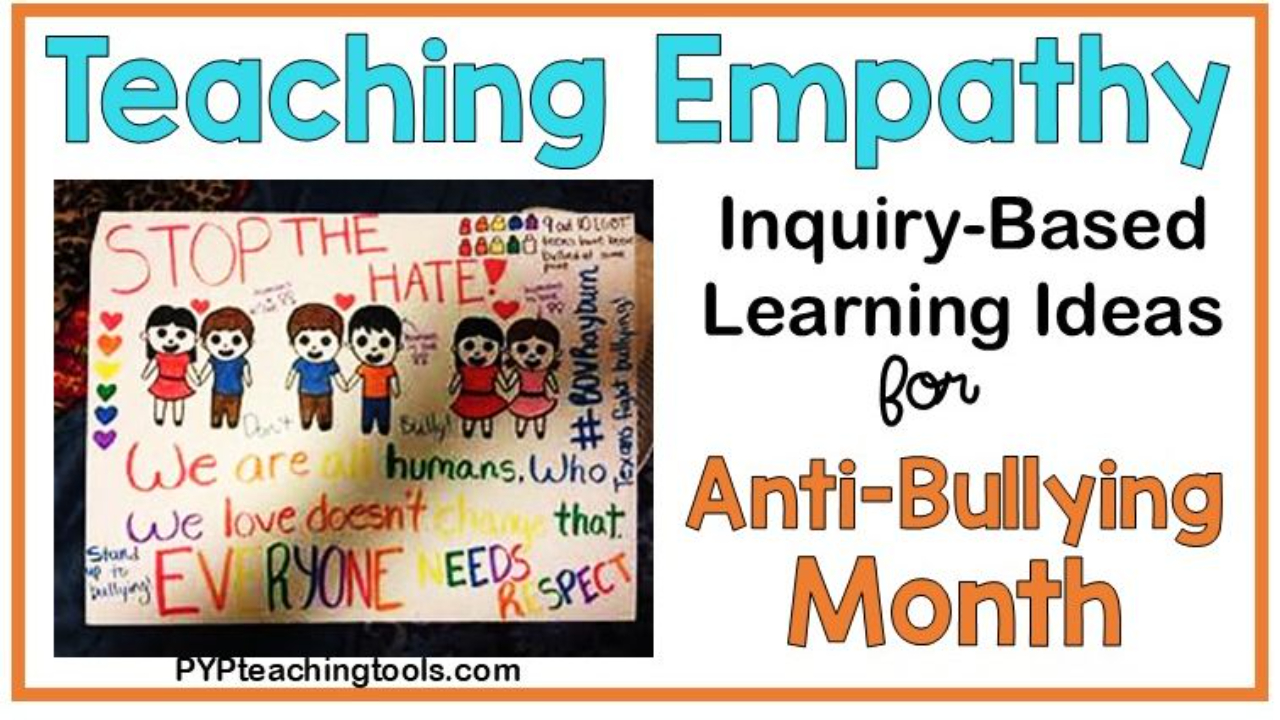Welcome to PYPteachingtools.com
5 Ways to Bring Inquiry Into Your IB PYP Math

Maths is so much more than “finding the answer.” When we connect it to everyday experiences, it becomes about seeing patterns, asking questions, and making sense of the world.
One simple but powerful guiding question is:
Where’s the maths here?
This question opens the door to authentic inquiry, giving students the chance to explore mathematics through curiosity, context, and connection. Below are five strategies you can use with any age group to nurture student agency and highlight maths through a conceptual lens.
I'm bringing you 5 ideas that can be applied with ANY age and really support student agency, identifying those threads for inquiry and all through a conceptual lens.
When we connect maths to everyday experiences, it becomes less about “finding the answer” and more about seeing patterns, asking questions, and making sense of the world.
Find the threads for inquiry.
Consider the big question: Where's the maths here?
Here are 5 simple, hands-on ways to bring that spiri...
Anti-Bullying Month Activities for IB PYP: Inspiring Inquiry, Kindness and Student Action

Inquiry, Empathy & Action in Anti-Bullying Month
Every October, schools worldwide focus attention on raising awareness about bullying, promoting kindness, and empowering students to act. National Bullying Prevention Month offers a timely frame for engaging learners in inquiry that leads not just to awareness, but to student-led action for positive change.
Within an IB PYP classroom, we can leverage this month to deepen conceptual thinking (e.g. perspective, responsibility, relationships, identity, fairness) while scaffolding students’ capabilities to inquire, reflect, and act in their communities. Below I've suggested a structure, some practical classroom examples, and ways to incorporate ready-made tools that encourage student agency.
BOOK LIST: And, Im including a book list for you too with some of my favourites for exploring the concepts of relationships, peace & conflict and caring. Scroll down😊
Core Research / Inquiry Skills in Anti-Bullying Projects
When framing an inqui...
New to the IB PYP? Essentials for Getting Started with the IB PYP

If you are one of the many, many teachers who will be new or newish to the IB PYP & inquiry-based learning this year, then this is for you. I want you to feel welcome within our community, knowing that this adventure is going to be amazing! Give yourself grace. Take it one step at a time. This article is FULL and links to videos and additional materials. Bookmark it and take notes. Grab a cup of tea and let's do this. Together.😊
I wanted to put out a list of the essentials for every IB PYP classroom, giving even those of you who, like myself, tend to procrastinate all summer long, plenty of time to prepare. Back to school preparations are in high gear for some and dragging for others. I tend to fall into the latter category myself…despite good intentions every single year. You know, last minute cramming moments before the kids walk into the classroom? No matter which camp you fall within, I have that checklist of the essentials for your inquiry-based classroom that will help keep you...
End of the Year Reflection Activities for the IB PYP Classroom

|
Greetings international teachers, from (not so) sunny Scotland. Another school year is almost over and I know those main challenges that we teachers face at the end of the school year.
Well, I have a few ideas for activities that are perfect for the end of the year that I wanted to share with you. These are easy to prepare, easy to implement and easy to keep the kids motivated whilst learning. Even if you arent at that point in your school year, take a look. Im hoping you'll be able to find something that might work for your class. White Board Summer WishesThe picture below is a photo of me with messages from my 3rd grade students. This is a super easy and fun activity for ALL age ... |
5 Keys to Develop Collaborative Learning Experiences in the IB PYP

There is no doubt that within most of the IB PYP units of inquiry we have those subjects that have to be addressed as "stand alone" lessons that require explicit teaching and a very real need for paper and pencil work. However, when it comes to engagement, we need to remember that hands on investigation, authentic application of the skills and student input is far more memorable for the children, enables transfer of understanding and supports a sense of ownership. Let's talk about the collaborative learning experience. I am using maths and reading skills as an example but it can be applied to any subject. Welcome to OPERATION COOPERATION.
..... it is fundamental to the philosophy of the PYP that, since it is to be used in real-life situations, mathematics needs to be taught in relevant, realistic contexts, rather than by attempting to impart a fixed body of knowledge directly to students -Oxford Mathematics & IBO
I will be sharing some real-world examples from my classroom with m...
Tips for Sharing the IB PYP with Parents

Engaging the families of our IB PYP students and getting them on board is so important for all involved and not least for bringing that cohension to our learning community. Often times, it is the parents in our learning community who are the last to understand what exactly it is that we do. I receive many questions and requests from teachers, coordinators and school leaders who are presented with this job of bringing the PYP to the parents. Do any of the questions below sound familiar?
So, what exactly is the PYP?
How is my child actually learning?
What do you mean that you're a FACILITATOR?
I'm a little concerned about this student-led inquiry thing?
Well, here's my advice for you if you've been given the soapbox to step upon and deliver the message of why we encourage inquiry based learning, support student agency and proudly fly the flag of being a PYP school. These tips are designed with ideas to pick and choose. Obviously, what you do depends on time, space and your sc...
Adding Depth to SEE-THINK-WONDER in the IB PYP


The good-old SEE-THINK-WONDER thinking routine. You could probably walk into any IB PYP classroom in the world and you will see it being used. How often do we use this oldie but goodie as a thinking routine? Without a doubt, it is a powerful starter to provoke our students' curiosity and then invite children to think more. But how much do we really utilise the power of this thinking routine as a means for developing the journey towards self-directed inquiry? When we dive deeper into SEE-THINK-WONDER we uncover the IBPYP sub-skills that fall within the Approaches to Learning Skills. In particular, we reach into the thinking & research skills. I have a few exclusive PYP teaching tools to support the popular thinking routine of SEE-THINK-WONDER for both our youngest learners and our upper grades and have them all developing those oh-so-important comprehension skills.
A Thinking Routine for ALL Ages:
Thinking routines help our students to think critically about an object, text, ...
Brilliant Books to Inspire Action in the IB PYP

Our aim is, through inquiry, to have the children come up with responsible, thoughtful and meaningful action that will make an impact. This impact does not have to be earth-shattering for the world. It does have to connect with their learning, giving a sense of purpose to their learning through experience and enabling their voice to shine through. This is extremely empowering. Think about the impact that taking action has on yourself; from checking off your daily to-do list, to accomplishing a marathon event. ( or a marathon! Haha! ) The impact begins with how you feel about yourself and, depending on the action, can have a domino effect in that it affects others in your immediate community, wider community or even globally. Regardless of the extent of the ripple effect of your action, it becomes empowering. So, how do we transfer this to the children?
Making it Happen The best way to encourage student action is to begin by giving children the knowledge of what action looks lik...
Supporting A Collaborative Classroom in the IB PYP

The very nature of the student led, inquiry based classroom is to amplify the children's voice and bring their thinking to light. As part of 21st century skills, we know that collaboration is a key player in this development of learning. There is no doubt that the process of learning through collaboration is the evolution of expanding understanding. It breaks away from that traditional " I" and "me" method of learning and brings forth the community mindset. We want to build up this sense of collective agency through our culture of community learning.
Why Collaborative Learning?
This form of learning enables a multitude of sub-skills and ALL of the IB PYP Approaches to Learning Skills. It brings meaningful experiences to learning and allows our students to work towards a higher level of thinking as they build upon each others' thoughts and ideas.
- Social skills: Becoming active participants of a social setting presents opportunities for the children to become more effective wit ...
Integrating Inquiry Based Math in the IB PYP

The Inquiry-Based Math Project in the IB PYP
Integrated maths inquiry, concept based maths, project based learning….it doesn’t matter what you call it, well designed projects support learning through a guided inquiry that has enough scope to ensure that maths concepts are approached authentically and with a student-led perspective. These projects naturally lend themselves to support all types and levels of learners. They are transdisciplinary in nature, allowing concepts and skills to be transferred and applied towards an end product that has largely been created with the children's voice as an obvious part of the process. They're open-ended enough to allow your students room to expand and direct the project yet structured enough to support those learners who aren’t quite ready to take that leap into independent inquiry. As you watch the following video, where I share my strategies together with Parvana Guliyeva (an IB PYP grade 4 teacher, currently in Portugal) consider our transd...


